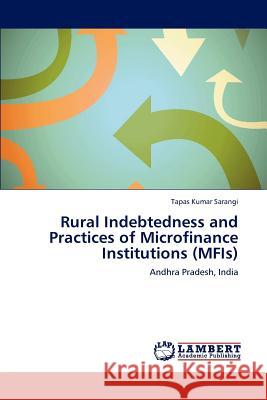Rural Indebtedness and Practices of Microfinance Institutions (MFIs) » książka
Rural Indebtedness and Practices of Microfinance Institutions (MFIs)
ISBN-13: 9783659195815 / Angielski / Miękka / 2012 / 112 str.
Over the past few years, a drastic change has occurred in the nature of financial services for the rural poor in India. Andhra Pradesh is one of the leading Indian state in terms of SHG and MFI growth, with the largest number MFIs based in the state. This rapid growth has caused intense competition amongst MFIs competing for both clients and staffs. Clients with multiple-borrowings from various sources are in some cases over-indebted. Many microfinance commercial organisations have entered the Rural Credit Market in search of profit and are competing to lend to the poor. In the process of giving loan to the poor the MFIs started chasing targets and numbers. This book tries to identify the gaps, issues and challenges faced by the rural households to manage their indebtedness situation. Further this book aims at understanding the critical issues of multiple borrowing and the collection practices followed by the MFIs in the state of Andhra Pradesh. With growing global interests from the scholars of Microfinance, Development Studies, Policy Planners and Civil Society Organisation, this book would be an important and timely reading for all of them.
Over the past few years, a drastic change has occurred in the nature of financial services for the rural poor in India. Andhra Pradesh is one of the leading Indian state in terms of SHG and MFI growth, with the largest number MFIs based in the state. This rapid growth has caused intense competition amongst MFIs competing for both clients and staffs. Clients with multiple-borrowings from various sources are in some cases over-indebted. Many microfinance commercial organisations have entered the Rural Credit Market in search of profit and are competing to lend to the poor. In the process of giving loan to the poor the MFIs started chasing targets and numbers. This book tries to identify the gaps, issues and challenges faced by the rural households to manage their indebtedness situation. Further this book aims at understanding the critical issues of multiple borrowing and the collection practices followed by the MFIs in the state of Andhra Pradesh. With growing global interests from the scholars of Microfinance, Development Studies, Policy Planners and Civil Society Organisation, this book would be an important and timely reading for all of them.











